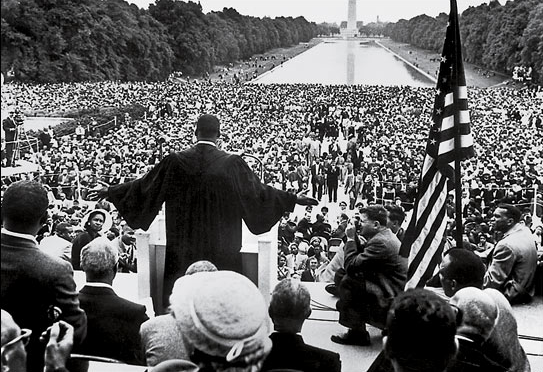How would you feel if you found out that Martin Luther King Jr’s “I have a dream speech” was written for him not by him? What would be lost if a speechwriter wrote Lincoln’s “Gettysburg Address” and the President delivered a borrowed speech?
The real story is that moments after Lincoln had finished, a young boy asked him how long it took him to write his speech. Lincoln replied, “My entire life.” I love that response (and so do you) because it encapsulates the first and most important element of effective leadership communication: authenticity.
Authenticity means speaking what you believe and believing what you speak, personal conviction is more important than technique.
Authenticity means speaking what you believe and believing what you speak, personal conviction is more important than technique. Click To TweetCharles Laughton was an English stage and film actor. He was also a director, producer and screenwriter. His was most known for his powerful and unique voice. He trained at London’s Royal Academy of Dramatic Art. He was an emerging star in the 1920s.
A story is told of a time when the actor was attending a dinner party in London just before Christmas. Towards the end of the evening, the hostess asked if anyone would like to recite a passage from scripture in honour of the Christmas holiday. Many obliged, including Laughton.
He asked for someone to help him find a passage in the Bible. The passage chosen was Psalm 23, which Laughton then read aloud in his beautifully trained voice. Everyone fell under the sway of his vocal brilliance. When he finished, the room erupted.
One by one, the other guests read their verses. Eventually, everyone had spoken except an elderly aunt sitting quietly in the corner. She was a little hard of hearing so she didn’t catch all the verses. The family gently prompted her to join in. She began, in a shaky voice, “The Lord is my Shepherd, I shall not want . . .” The room hushed, and she continued from memory, “He makes me lie down in green pastures, he leads me beside still waters, he restores my soul.”
Line after line, she recited the verses by memory. Tears filled her eyes – evidence of her conviction that the passage was true. With each verse, her voice grew stronger. By the time she was done, everyone had tears in their eyes. The room was still, in reverent silence.
Laughton’s recitation received appreciation for his vocal ability; the aunt’s recitation led to a deep connection and inspiration. “How do you account for it?” someone asked Laughton later. “I read the psalm,” he said. “She knows the Shepherd.” As a leader it’s important to speak your convictions and your lived experience. Conviction is more important than polish and technique.
Leadership communication begins with a set of clear values. Getting to clarity involves prayerfully exploring the inner territories of your heart where your true voice resides – the voice God had in mind when He created you. Deep within your heart are values you cherish so much that you will fight to secure them, grieve if you ever lose them, and rejoice when you achieve them. These values are the starting point of communicating as a leader.
Explore the inner territories of your heart, where your true voice resides, the voice God had in mind when He created you. Click To TweetIf you can’t find your values, you won’t find your prophetic voice. You may end up using a vocabulary that belongs to somebody else. Gaining clarity of your values has to be a self-led voyage. You cannot take a short cut by borrowing the values of others. That would make you a follower, not a leader.
Borrowing the values of others makes you a follower not a leader. Click To TweetDo you have a crystal clear set of personal values that inform all your decisions and fill your messages with passion and conviction? One way to clarify your values is to use the imaginative process suggested by Dr. Stephen R. Covey. Imagine yourself 20 years from now, attending your own funeral. Your spouse, children, and most of your extended family are present. Many of your staff and co-workers are there as well. People from your church community and other community organizations have also gathered. Even patrons of the local soup kitchen where you volunteer once a month are present. Many take the microphone to share a few words about you. They talk about how you treated others and how you dealt with adversity. They speak about the values and principles they saw in your life. What you want to hear them say is a good indication of the values you have deep in your heart.
Pay attention when you complete this exercise. Write down your thoughts. Use this imaginative process to begin a journey of self-discovery to define or refine your personal values. Take this exercise into a day of prayerful silence to write out your own leadership credo.
Cynicism and distrust of leaders are on the rise. Keep it real. Be a voice, not an echo.
Cynicism and distrust of leaders are on the rise. Keep it real. Be a voice, not an echo. Click To Tweet
